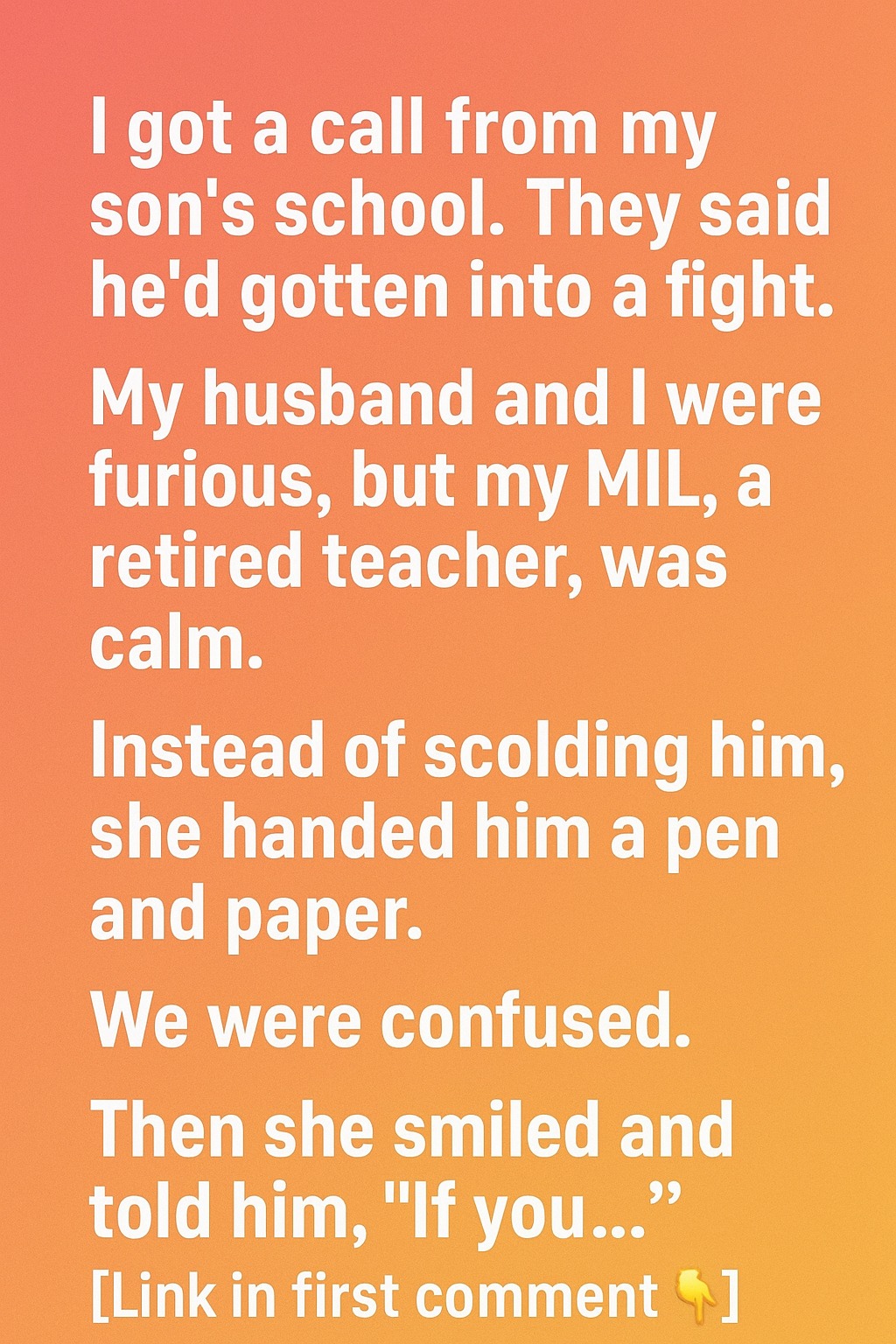When the school called to say my son had been in a fight, my heart sank. My husband and I braced ourselves for anger, punishment, and lectures the moment he got home. But my mother-in-law, who spent decades as a teacher, surprised us with her calm approach. Instead of raising her voice, she asked for a pen and paper and handed them to my son. Then she said gently, “If you’re old enough to use your fists, you’re old enough to use your words.” That single moment changed everything.
At first, our son looked confused, but eventually he began to write. Page after page, he explained what had led up to the fight—how he’d been teased for weeks, how his feelings boiled over, and how he didn’t know another way to handle it. Reading his words out loud brought us closer to understanding him, and it softened our frustration. We saw not just anger, but hurt and regret that he hadn’t been able to express before.
My mother-in-law then handed him a second sheet of paper and asked him to write what he wished he had done differently. This time, his words carried empathy and even an apology. By the end, he was calmer and surprisingly proud of what he had written. The next day, he read his note to the other boy and to his teacher, turning a fight into an act of maturity and healing.
The school counselor later told us it was one of the most meaningful resolutions they had ever seen. That night, I realized the power of slowing down and guiding children to reflect instead of simply punishing them. My son learned that words can heal wounds that fists can’t—and we learned that with patience and the right guidance, even difficult moments can become life-changing lessons.
